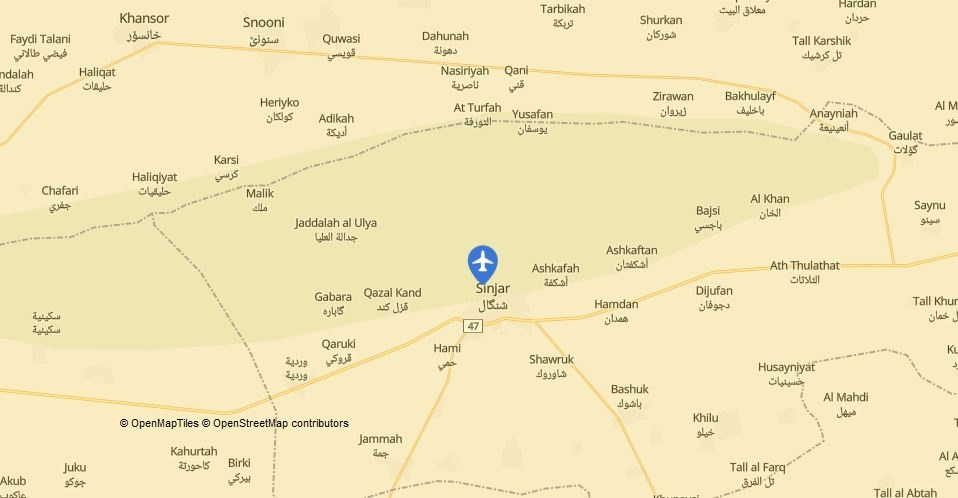1.2K
Kirkuk
- Deployment of Iraqi troops in the Kurdish neighborhood continued for the second week in a row, causing stress and instability. The commander of the Kirkuk operation, Ali Fariji, justified the presence of dozens of military hammers and heavy weapons to “provide security” so the markets “remain open.” The Kurdish population rejects the presence of the security forces mainly over social media, fearing protests. Moreover, artillery has been placed on the historic Kirkuk Citadel amid the silence of the archaeological department.
- On October 16, after more than a year of its compilation, without announcement, the Kirkuk administration opened the Kirkuk airport in a low-profile ceremony attended by the Iraqi minister of transportation. The ceremony only included Arabs and Turkmen officials, as the administration did not invite any Kurds. In the past year, security concerns delayed the opening of Kirkuk airport, especially ISIS (Da’esh) threats in the area. However, pushed by the acting governor Rakan al Jabouri, the airport opened its door to passengers with only Iraqi airways operating domestic flights in the absence of other airlines due to fears of terrorist acts. The Deputy Speaker of Iraq, Shakhawan Abdullah, accused the administration of “corruption” in the airport construction and said,” We won’t allow the airport to open.”
- In a statement to the media, the Acting governor al Jabouri said the Arabs and the Turkmen share the “same fate” in Kirkuk, and without the two components, there shouldn’t be any “compromise” in the province. Al Jabouri’s statement comes after rumors of a Baghdad-Kurdistan agreement to end Al Jabouri’s role as the acting governor and replace him with a Kurd. Al Jabouri faces dozens of corruption cases at the Integrity Commission.
- On October 17, an IED killed three children in the village of Adliyah in the Yaichi subdistrict. The IED is believed to be a remnant of the Da’esh ruling era. The Iraqi Mine Action Agency reported that 32 Kirkuk locations are yet to be cleared from mines and war remnants.
Khanaqin
- The Iranian-backed Popular Mobilization Units (PMU) remain a significant force in Khanaqin. The PMUs entered Khanaqin after the Diyala Operation Command mistakenly accused the Kurds of bringing more Peshmerga forces into the town. However, after sorting the issues between Baghdad and Erbil, the PMU did not withdraw and remained in the city to pressure the Kurds.
Tuz Khurmatu
- During an operation against Da’esh on October 19, an IED severely wounded the commander of the Kurdistan Commando Forces, Akam Omar, near the Zenana village. The blast also killed a captain named Zuhair Mohammed and injured seven other Peshmergas. Separately, the security forces in Tuz Khurmatu announced the arrest of three Da’esh terrorists at a checkpoint and confiscated their “fake” identification cards. On October 20, the head of Kirkuk Coordination Command, General Khalid Awdal, warned that Da’esh spread between Tuz Khurmatu and Kifiri districts.
Shingal (Sinjar)
- On October 18, Turkish drones bombed a Sinjar Resistance Forces (YBS) vehicle in the Shahidan neighborhood inside the Shinagl district. The attack killed two, including the car’s driver, and wounded two other members of the YBS.

